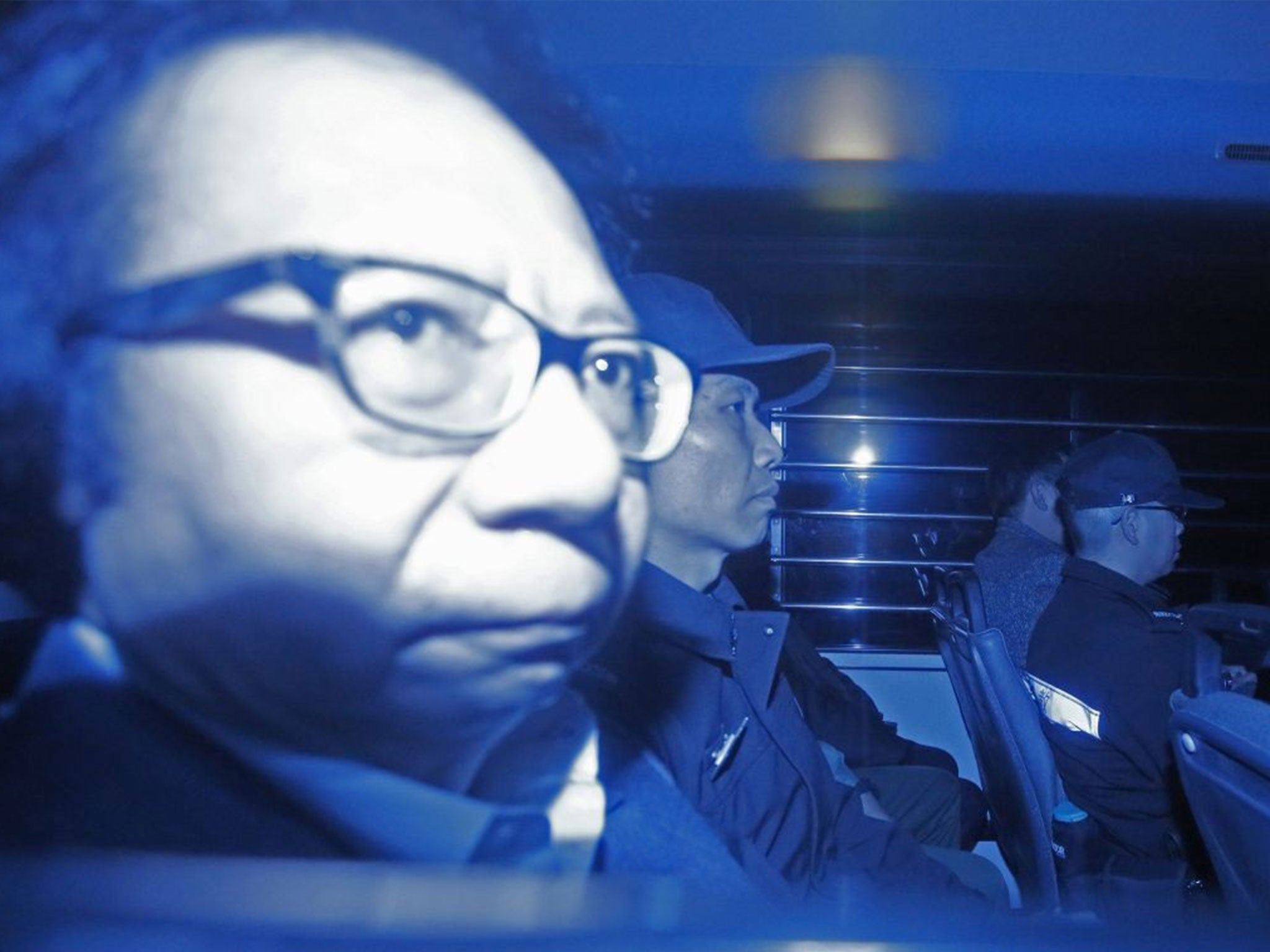The Hong Kong bung scandal: tycoon guilty of bribing lawman
Thomas Kwok awaits sentencing in biggest graft case in country's history

Your support helps us to tell the story
From reproductive rights to climate change to Big Tech, The Independent is on the ground when the story is developing. Whether it's investigating the financials of Elon Musk's pro-Trump PAC or producing our latest documentary, 'The A Word', which shines a light on the American women fighting for reproductive rights, we know how important it is to parse out the facts from the messaging.
At such a critical moment in US history, we need reporters on the ground. Your donation allows us to keep sending journalists to speak to both sides of the story.
The Independent is trusted by Americans across the entire political spectrum. And unlike many other quality news outlets, we choose not to lock Americans out of our reporting and analysis with paywalls. We believe quality journalism should be available to everyone, paid for by those who can afford it.
Your support makes all the difference.The usually drab head office of Sun Hung Kai Properties, looming on the Hong Kong island waterfront, illuminates the sky with gaudy neon Christmas decorations.
A sign wishes Hong Kongers: “Season’s Greetings.”
There is one man, however, who would like to bid farewell to December and the present it has brought him. He is the company’s billionaire chairman, Thomas Kwok, who was yesterday found guilty of bribing top government official Rafael Hui to the tune of HK$8.5m (£700,000).
The money may be small beer for a man like Kwok – among the world’s richest tycoons – but it has triggered a startling fall from grace for Hui, a former chief secretary of the local government and a bona fide member of the Hong Kong’s great and good.
Born in nearby Macau, he had worked for the Hong Kong government on and off since the 1970s. In the past 20 years, he had plenty of dealings with Kwok, leasing space for both business and pleasure in SHKP’s exclusive properties, acting as a consultant for the firm, and taking large loans from its subsidiary.
But in 2012, anti-corruption police arrested and charged the pair, along with Kwok’s brother and co-chairman of SHKP, Raymond. Prosecutors alleged the brothers paid Hui to be their “eyes and ears” in government, and that he fed them information on pending land sales, while serving as the city’s number two official.
The biggest graft case in Hong Kong history heard evidence of Hui’s taste for a high life he could not honestly afford. He admitted spending HK$200,000 on records in a single day in 2007. Married for 40 years, he also admitted spending millions on a woman in Shanghai.
Raymond Kwok was found not guilty. Speaking outside court, he said: “I’m feeling very conflicted. I’m happy that the verdicts proved my innocence. On the other hand, I’m unhappy that Thomas Kwok was found guilty.”
SHKP released a statement yesterday announcing Thomas Kwok’s resignation from the company and, without direct reference to the court case, said: “The normal daily business and operations of SHKP have not been affected by recent events.” The scandal is shocking for Hong Kong, a renowned financial centre whose tycoons are often cosily enmeshed with the local government and its masters on the Chinese mainland.
But just like the constant sulphuric smell from Victoria Harbour, there is always a whiff of suspicion that these public relationships may not be completely above board. Even the city’s current leader, Leung Chun-ying, made his money in property and took millions of pounds in undeclared payments just before assuming office to serve “the needs” of a foreign firm. When this was revealed in October, he said the non-declaration was fine because the payment came during a five-month gap in his political career.
Hui and Kwok had no such defence. Their downfalls come at a bad time for the city’s super-rich, who for some time have enjoyed deference from Hong Kongers. No more. One central theme of the recent protests has been the widening wealth gap. Many young Hong Kongers have little chance of buying a place of their own because landlords and speculators are pushing up prices.
Further along the waterfront from the SHKP building is the International Finance Centre, whose biggest skyscraper dwarfs the rest of the island. It was in this gleaming edifice, built by Kwok’s firm, that Hui leased an office for a former employer. And it’s the same building that Christian Bale’s Batman leapt off while battling another crooked Hong Kong businessman in The Dark Knight. Hui and Kwok might not quite be supervillains, but they do face the prospect of prison terms when court reconvenes on Monday.
Join our commenting forum
Join thought-provoking conversations, follow other Independent readers and see their replies
Comments